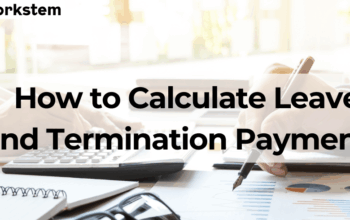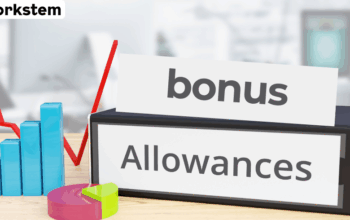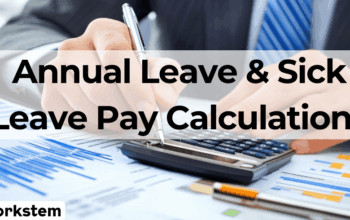Ensuring your retail staff get the correct break entitlements isn’t just good practice, it’s a law. Under the General Retail Industry Award 2020 (the Retail Award), employees must receive specific paid rest breaks and unpaid meal breaks depending on their shift length. For example, after working 4–5 hours an employee is entitled to a 10‑minute paid rest break, and staff working longer shifts must receive more breaks. Complying with these rules avoids costly penalties and keeps your business in line with Fair Work regulations.
What are meal and rest break entitlements?
Under the Retail Award, all retail employees have mandatory break entitlements. In practice, this means:
- Rest breaks: Employees working 4–5 hours get one paid 10‑minute rest break. Employees working 7 hours or more receive two paid 10‑minute rest breaks (one in the first half of the shift, one in the second).
- Meal breaks: Any shift over 5 hours must include at least one unpaid meal break of 30–60 minutes. For shifts of 10 hours or more, employees are entitled to two such meal breaks.
These break times are in addition to normal working hours and should be scheduled into each employee’s roster. Retailers must inform employees when to take breaks and ensure they are actually taken. Crucially, employees cannot be forced to combine a rest and meal break or skip breaks: for instance, no one can work over 5 hours straight without at least one meal break. Breaks cannot be scheduled too close to the start or end of a shift either.
The Fair Work Commission consolidated the Award through August 2024, and it remains up-to-date for 2025. It specifically prevent:
- scheduling any break within the first or last hour of a shift,
- combining rest and meal breaks, and
- requiring anyone to go beyond five hours without a meal break.
These rules ensure staff get a meaningful break and prevent employer shortcuts.
Why does compliance matter for breaks?
Non-compliance with break entitlements can be risky. The Fair Work Ombudsman actively enforces the Retail Award, and recent changes highlight the stakes: for example, if an employee doesn’t get the mandated 12‑hour break between shifts (or 10 hours by agreement), all hours worked without that break must be paid at 200% of the normal rate until the break is given. In effect, an employer pays double‑time if the proper rest period isn’t provided.
In practice, failing to provide entitled breaks may be considered an underpayment. If an audit or Fair Work inspection finds a breach, a retailer could owe back-pay and fines. Complying with the Award isn’t optional. Retail business owners can avoid disputes and penalties by strictly following the break schedule rules. As one compliance guide notes, “Employees cannot be required to take any break (rest or meal) within one hour of starting or finishing their shift,” and it’s prohibited for any employee to work more than five hours without a meal break. Adhering to these guidelines helps keep staff well-rested and reduces legal exposure.
How to automate break entitlements?
Managing these break entitlements manually can be complex, especially across many shifts. Modern HR and rostering software can help. For instance, Workstem’s cloud-based platform automatically incorporates Retail Award rules into schedules and time-tracking. The system can be set to insert the required meal break and rest breaks into each shift based on its length, and to flag any potential violations before they occur. This ensures breaks are both scheduled and recorded accurately.
By using an automated tool, you’ll reduce errors like forgetting a second rest break or miscalculating break times. Workstem’s solution can also generate reports proving compliance, which is invaluable if your workplace is ever audited. The right software effectively makes managing break entitlements effortless, saving time for managers while protecting the business from compliance risks.
To Wrap Up
Retailers should review their roster and payroll processes now to verify that all staff receive the correct breaks under the General Retail Industry Award. Audit your recent timesheets to ensure no one has worked through an unpaid meal break or skipped a rest break. Then consider using a solution like Workstem’s HR platform to schedule staff and track time automatically. Workstem can handle complex award rules so you don’t have to.
By staying on top of Retail Award break rules, you’ll keep employees happier and your business safer.
How Does Workstem Help?
Simplify your payroll process and ensure accurate pay rates with Workstem’s automated payroll system. Our pre-built modern award interpretation software covers 122+ awards and 34 EBAs, and keeps you up-to-date with penalty rates and other award entitlements.
Choose between our Standard and Advanced plans, and enjoy a range of benefits such as Fair Work compliance, an employee self-service App, and custom rule set. We have integrated our system with Xero and NetSuite as well to bring you a complete HR SaaS solution for your business.
Book a free demo with our payroll experts. Experience the efficiency and accuracy of Workstem today!
FAQs: Managing Meal & Rest Breaks under 2025 Retail Award
Q1: Can rest breaks and meal breaks be combined under the Retail Award?
A1: No. Rest breaks and meal breaks must be separate. Rest breaks are paid and count as work time, while meal breaks are unpaid (unless specified otherwise for shift workers).
Q2: What happens if an employee works without a 12-hour break between shifts?
A2: If an employee works without the mandated 12-hour break between shifts (or 10 hours by agreement), all hours worked are paid at 200% of the minimum rate until the employee gets the required break—rising to 225–250% on public holidays.
Q3: How can I automate break entitlements to ensure compliance?
A3: Using HR and rostering software like Workstem can help automate break entitlements.The system can schedule required meal and rest breaks based on shift length and flag potential violations before they occur.
Q4: Are there any penalties for non-compliance with break entitlements under the Retail Award?
A2: Yes. Non-compliance can lead to significant penalties. For example, failing to provide mandated breaks may result in back-pay obligations and fines. The Fair Work Ombudsman actively enforces these rules.
Q5: Can meal breaks be scheduled within the first or last hour of a shift?
A5: No. Meal breaks cannot be scheduled within the first or last hour of a shift. This ensures employees get meaningful rest periods.
Q6: How often should I review my roster to ensure compliance with the Retail Award?
A6: It’s recommended to review your roster regularly, especially after any changes in shift patterns or employee schedules. Regular audits help ensure all staff receive the correct breaks.
Q7: Can rest and meal breaks be combined?
A7: No. Rest breaks and meal breaks must be separate, as rest breaks are paid and count as work time, while meal breaks are unpaid (unless for a shift worker).
Read more:
General Retail Industry Award Guide [MA000004]
Updated Retail Award Rates 2024: What You Need to Know
Case Study 1: Revealing the Difference Between Woolworths’ EBA and Retail Award








